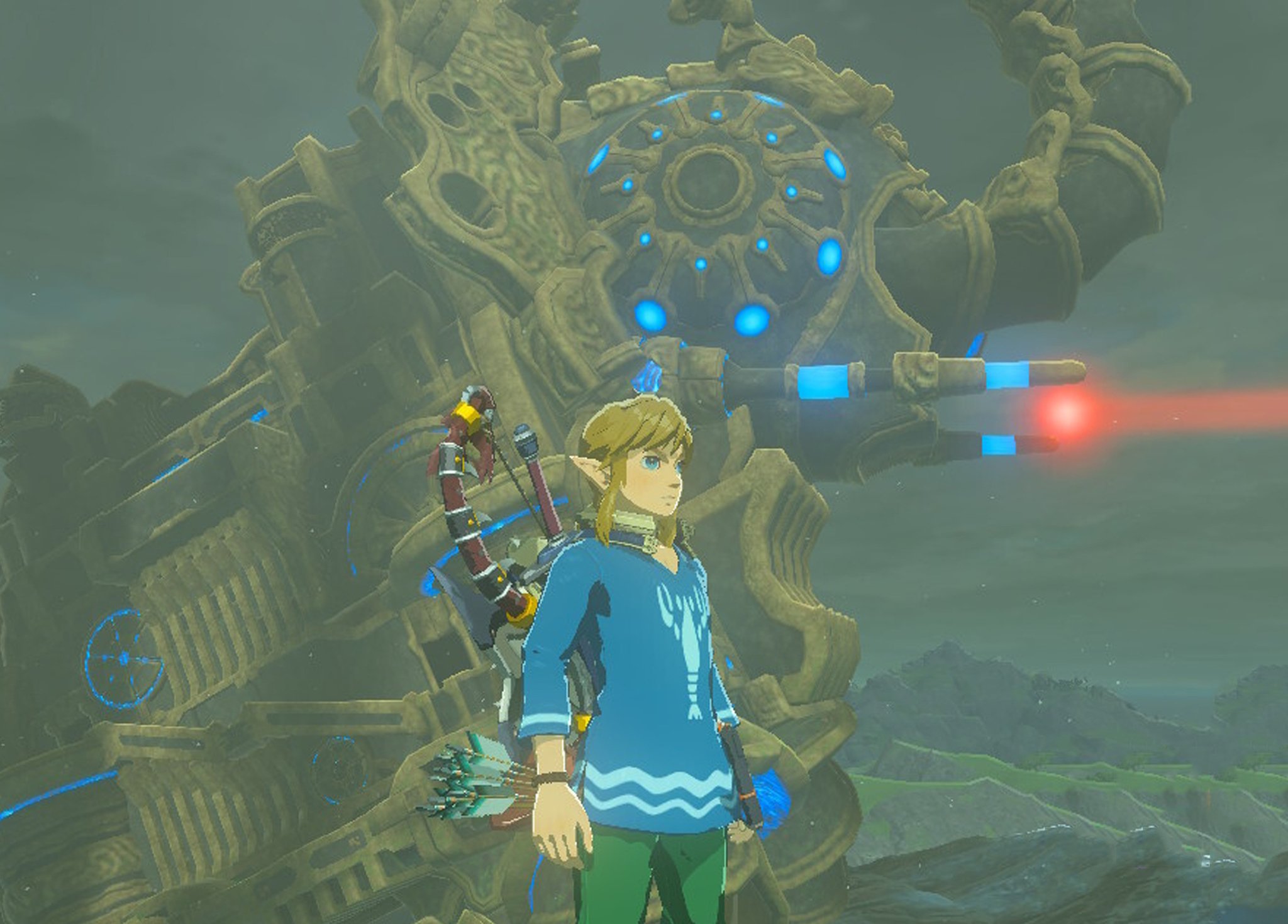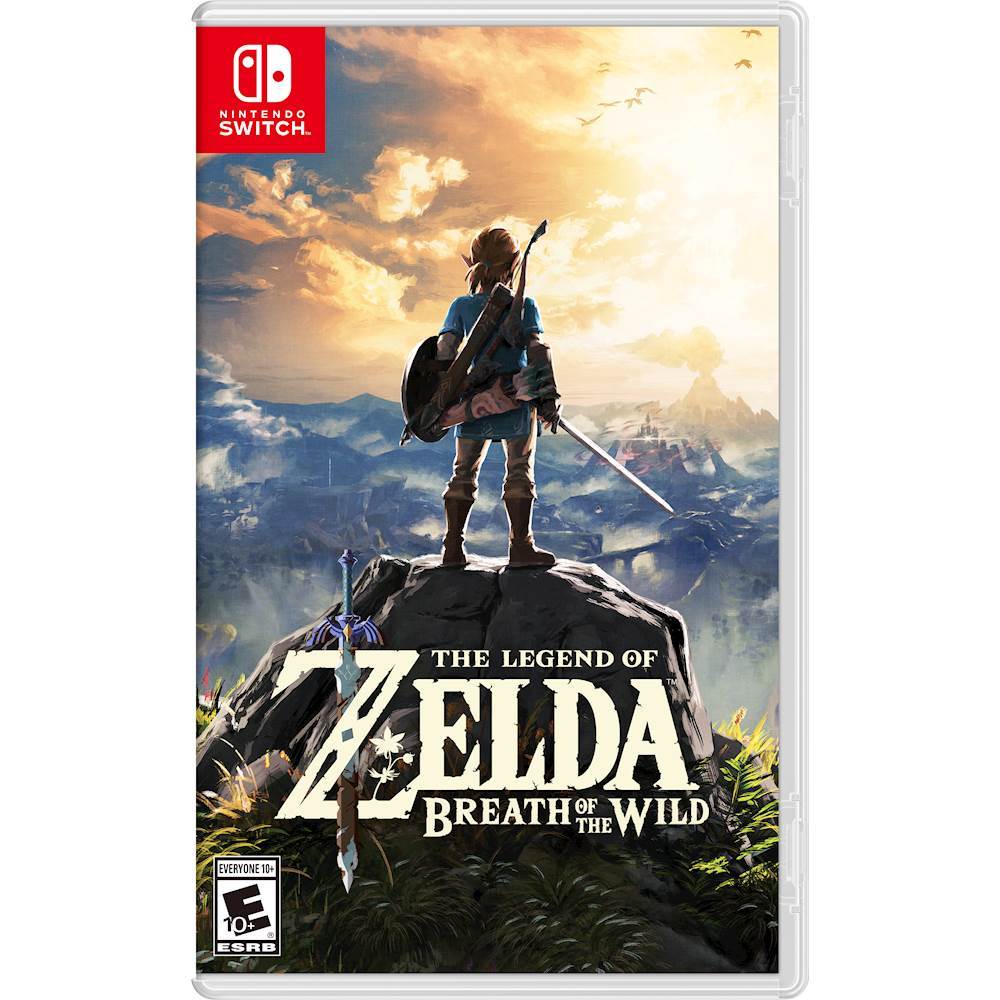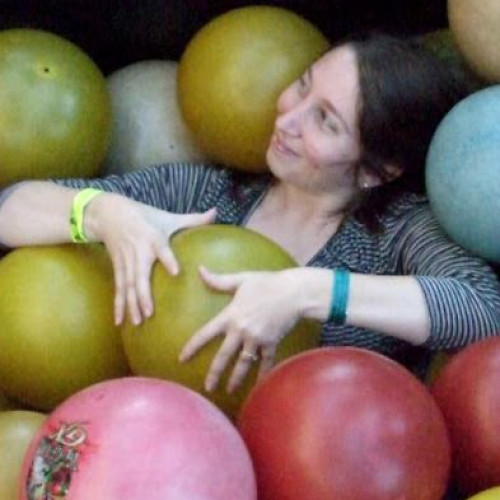iMore Verdict
Bottom line: Experiment and explore to make the most of this gorgeous, sprawling, open-world adventure game. Zelda novices and afficianados will both find something to love.
Pros
- +
A massive open world to explore
- +
Dungeons can be solved in just a few minutes
- +
Easy to jump into even if you haven't played a previous Zelda game
- +
Strongly rewards experimentation
Cons
- -
Game logic can be hard to figure out
- -
Crafting can be tedious
You can always trust iMore.
As soon as you clear the first zone in The Legend of Zelda: Breath of the Wild, the game's final quest appears in your mission log. If you want to try to storm Hyrule Castle and take on Calamity Gannon immediately, you're welcome to try.
That radical freedom is at the core of the design philosophy in The Legend of Zelda: Breath of the Wild, which was one of the release titles for the Nintendo Switch. Just as the Switch transformed video gaming by breaking down the console/handheld divide, Breath of the Wild transformed Nintendo's iconic action-adventure series by removing nearly all gating to produce a vast open world peppered with quests, bite-sized dungeons, and hidden rewards. Many people regard it as one of the best Nintendo Switch games.
That commitment to exploration and discovery is a mixed blessing. Very little is explained and it's easy to literally and figuratively get lost while trying to puzzle out the best way to progress. Some elements, like crafting food and elixirs, lose their novelty and feel needlessly time consuming as the game goes on. Despite all of this, dedicated Zelda fans and players looking for a massive game they can play at their own pace will be rewarded with a sprawling adventure.
The Legend of Zelda: Breath of the Wild — The magic returns
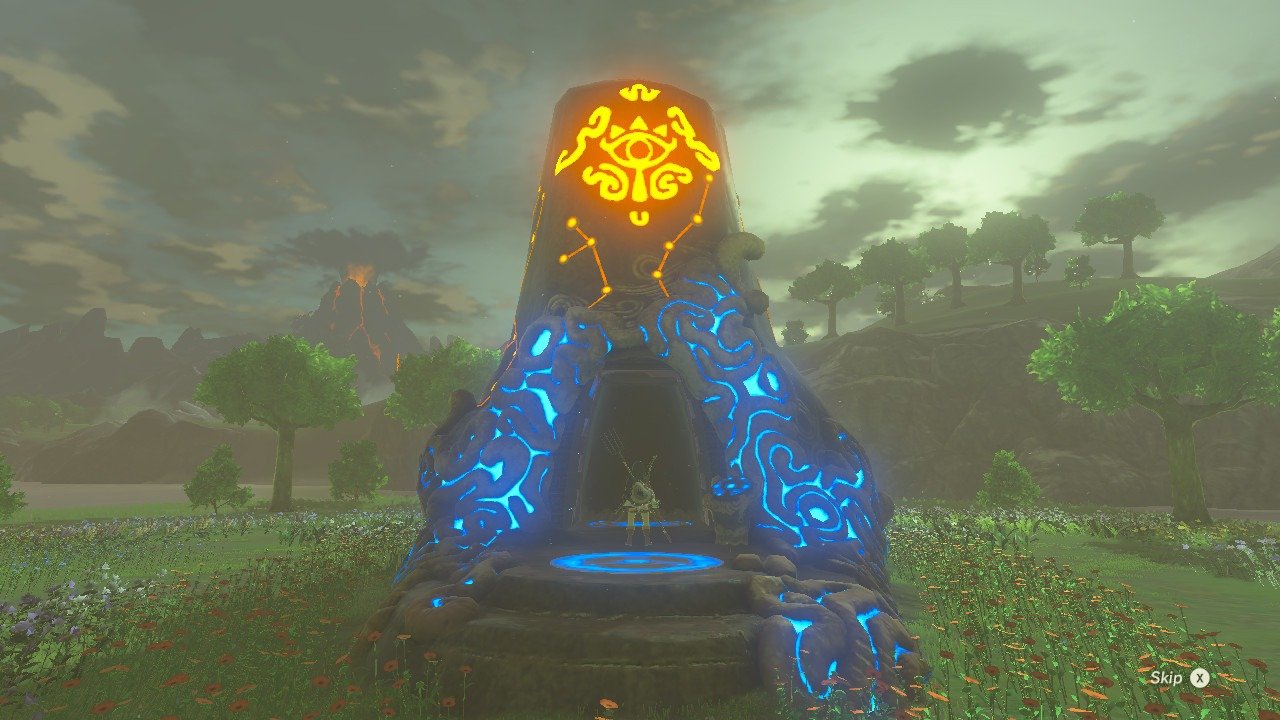
The Legend of Zelda series dates back to the original NES and helped to establish both the action-adventure and roleplaying game genres. Breath of the Wild follows the same basic plot present throughout the series, with you playing Link, an elf-like warrior who must help Princess Zelda defeat the demonic Gannon and save their world, Hyrule.
Legend of Zelda starts 100 years after a failed attempt to do just that. Link was killed and only sustained effort by Zelda has kept Gannon in check. As Zelda's strength fades, Link is resurrected and must regain his memory and powers to prepare for the final battle. He'll also need to save other fallen heroes and call upon long-lost technology to (safely) take on Calamity Gannon.
Puzzle everything out
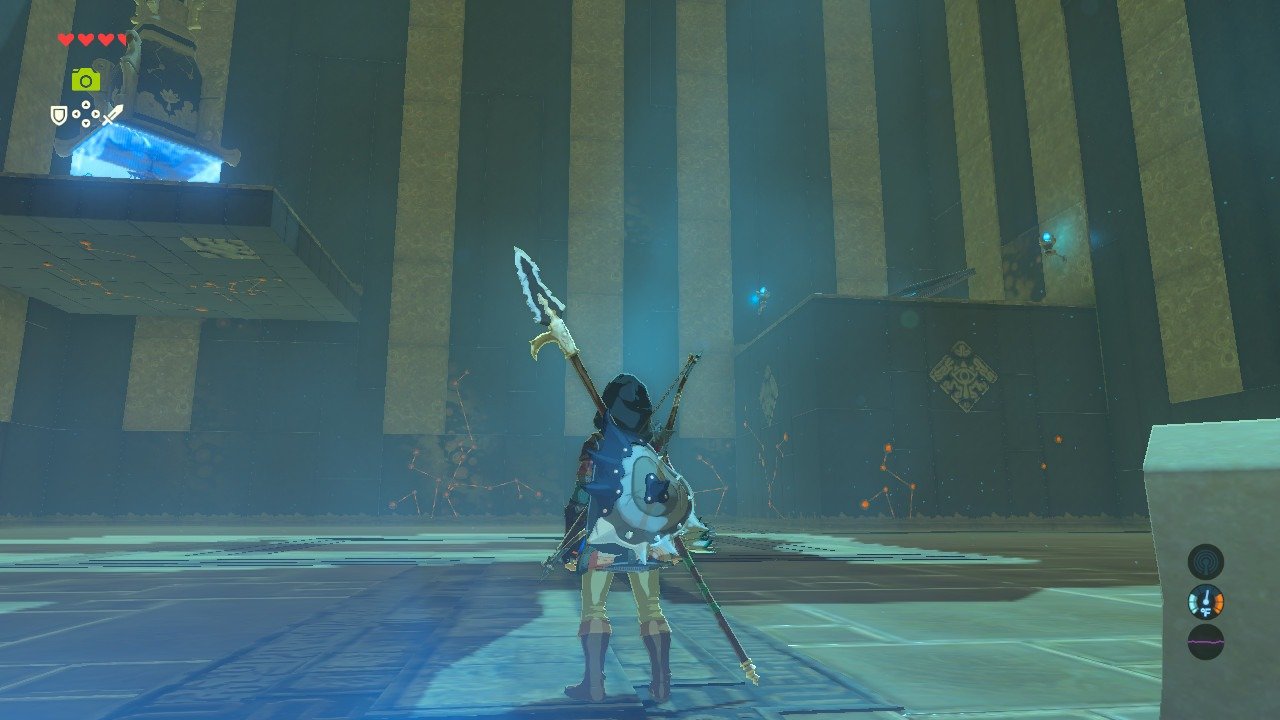
Link is equipped with a Sheikah Slate, a piece of ancient technology that looks curiously like a Switch in handheld mode. It's the key to activating similar technology found throughout the massive world in the form of towers that will populate your world map and shrines that are tiny puzzle dungeons.
Link quickly picks up the ability to turn water into blocks of ice that can be used as stepping stones, lift metal objects to place them or destroy them, stop time to avoid obstacles or shatter things with bursts of kinetic energy, and throw or place bombs. Figuring out how to use all these powers in concert and at the right time is the key to completing most of the dungeon trials and unlocking all the secrets of the vast open world.
These dungeons all become fast travel points, making them easy to revisit if you can't figure out what you're supposed to do or are just having a tough time with the mix of coordination and timing required to actually achieve your goals. Every dungeon you complete gives you a Spirit Orb, which can be cashed in to increase your number of hearts, making you harder to kill in combat, or up your stamina, which will let you explore more of the world without relying on consumables.
What does an RPG hybrid look like?
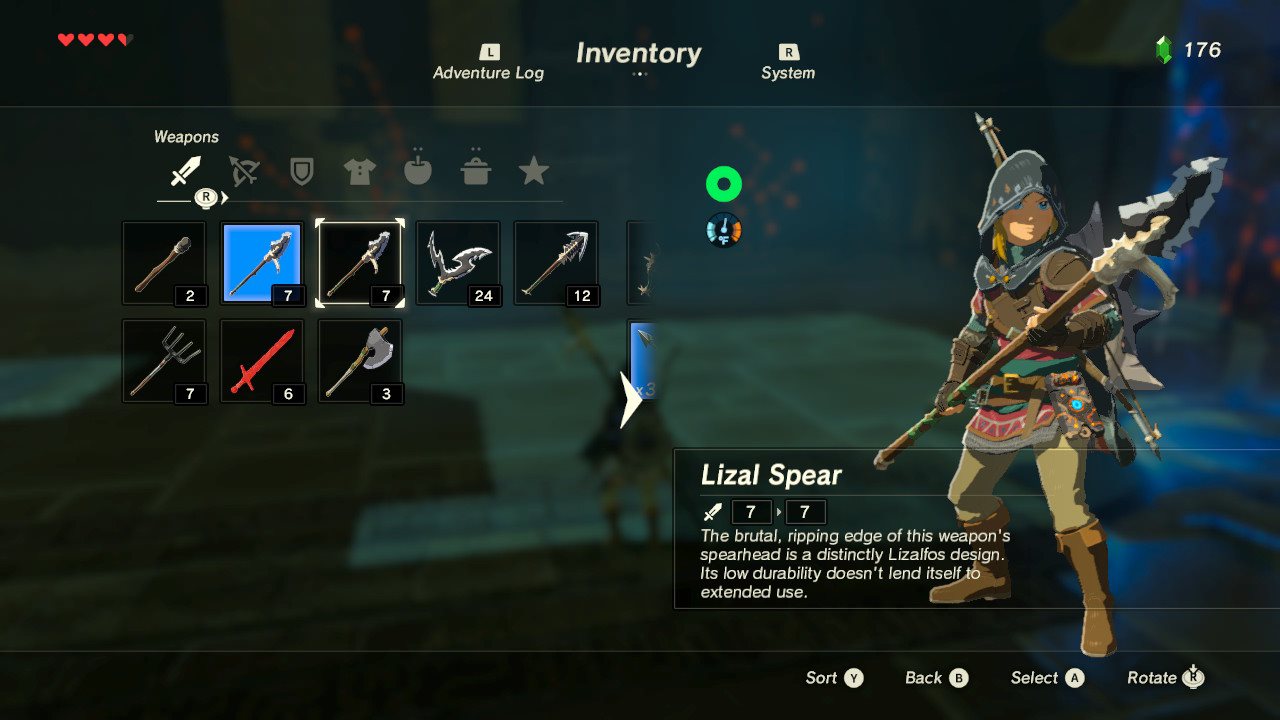
Those buffs are the closest that Breath of the Wild comes to a leveling system. While you can buy some improved armor that will make you a bit tougher or let you sneak up on enemies, your weapons and shields are entirely disposable and fall apart after just a few uses. This can definitely frustrate some players but I actually enjoyed the challenge and whimsy of needing to constantly find new weapons to use while saving my favorites for tough fights or their utility purposes like lighting fires.
A sword is highly effective, but I would only bust a good one out when I needed to do fast damage against elite monsters that would kill me with a single hit. I spent plenty of time dispatching lesser foes with pitchforks or skeleton arms. The different attack ranges and styles makes the otherwise fairly simple hack and slash combat feel dynamic throughout the game.
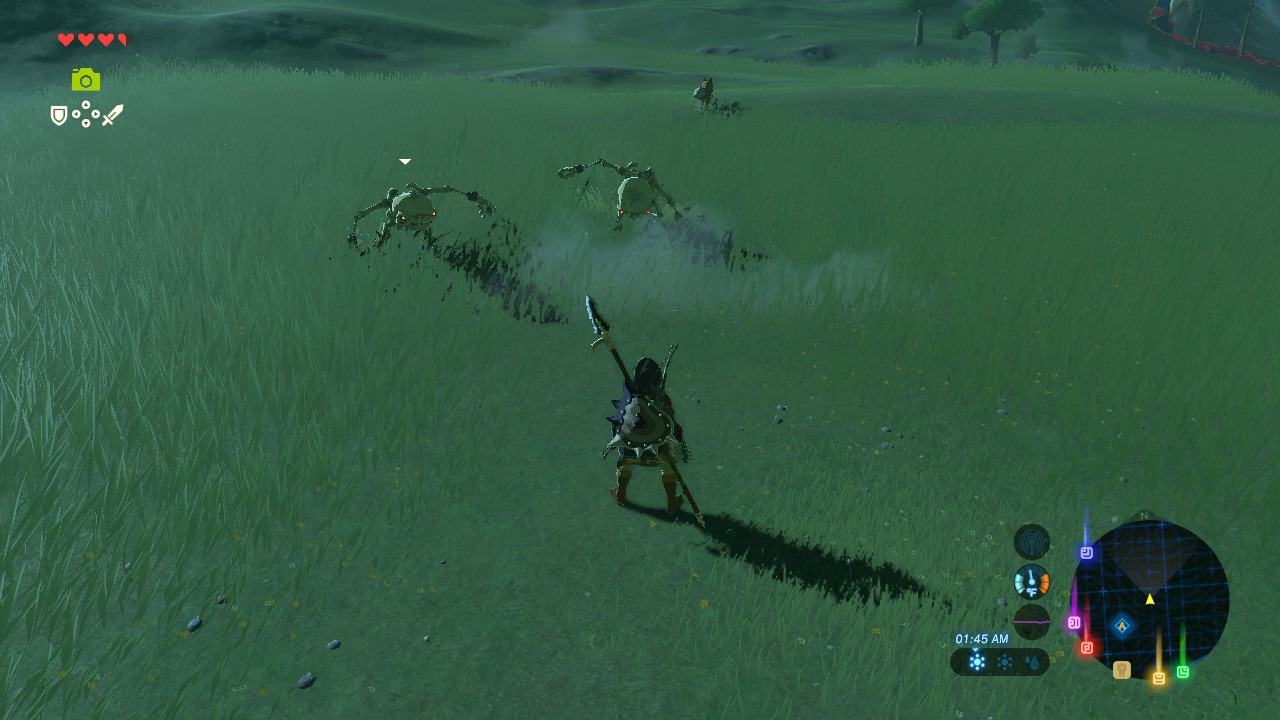
Like with all things, the key to increasing your power is to explore every inch of the world. Link can gather mushrooms and fruit to make meals that will restore health or turn monster parts into elixirs that will protect him from the elements or momentarily raise his toughness. When exploring some of the more foreboding areas of the game, you can either be prepared or rush in and survive before your consumables run out and you freeze to death, for example.
Completing side quests will reward you with components, currency, or maybe just a bit of information on where to find another objective. Killing nests of monsters can give you powerful items. Finding and solving small puzzles outside of shrines will let you expand your inventory, which starts out frustratingly tiny.
While the game autosaves regularly, you should still remember to save yourself in case you get lost or surprised and want to avoid losing progress. Without a leveling system or gated areas of the map, it's easy to wander into places or foes that you're simply not prepared to confront.
The Legend of Zelda: Breath of the Wild — A little help would be nice
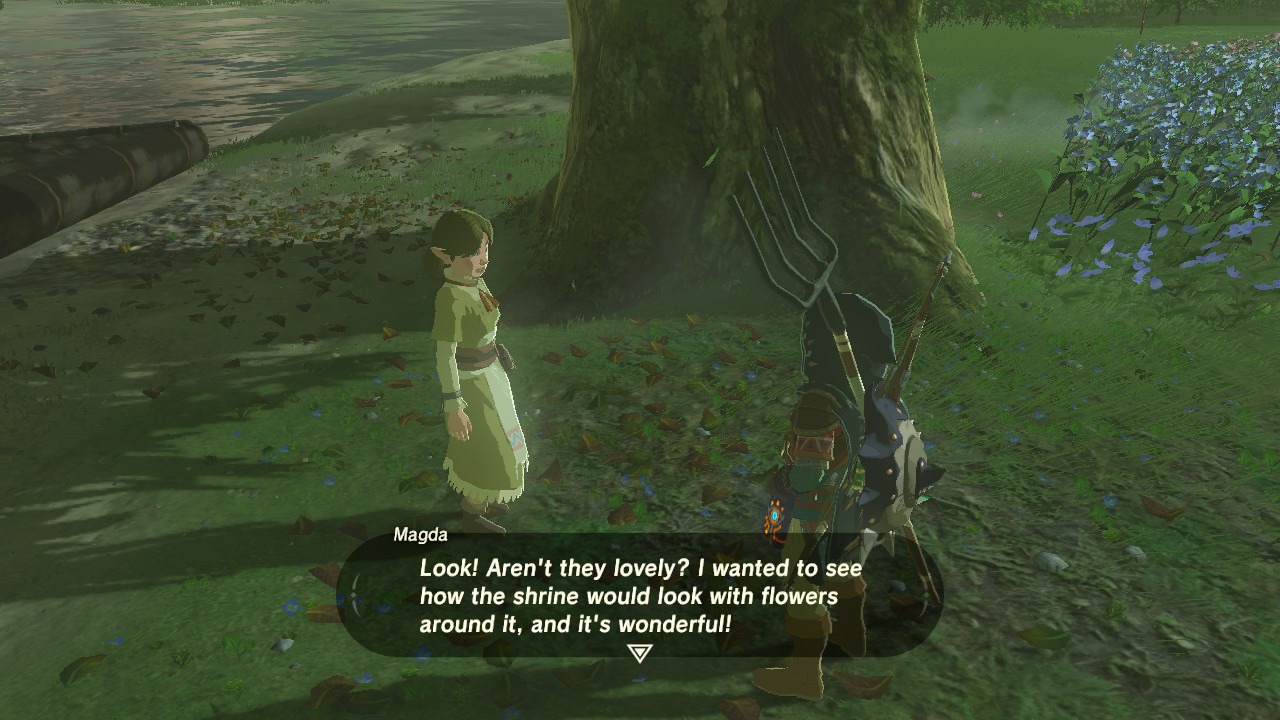
In many ways, The Legend of Zelda: Breath of the Wild resembles Animal Crossing: New Horizons more than a traditional action-adventure game. Very little is explained about how the world works and what you're supposed to do. While players are meant to figure everything out, there are times that the game's logic can seem baffling if you're not consulting a guide.
A quest might tell you to speak to an innkeeper, but if you chat with her standing in front of her desk she'll just deal with you as a prospective customer whereas if you walk behind her desk you'll actually get the quest prompt. Kids standing around a stable will tell you how to catch and tame a wild horse, but you need to speak to a different character to actually keep your new mount. Shining rock deposits can't be mined but can be harvested if you blow them up with a bomb.
If you talk to and really listen to every NPC you meet, you'll learn plenty about how to use Link's powers and interact with the world. But conveniences players have come to expect from modern games are either entirely lacking or inconsistent. I love puzzling out new recipes in any crafting system and there's a huge variety to be found by tossing all sorts of components into a cookpot. However, even once you've discovered a recipe you have to keep selecting each component individually for the rest of the game without being able to consult a recipe book to remind you what it will make.
Sometimes when you get advised to go to a new place, the quest marker will move there. Sometimes it will just stay with whoever gave you the tip and you need to just remember the directions. That's tricky given that the game's terrain can often look very similar and that it's easy to get distracted running off to chase down a critter or a shrine that pops up on your map. Forcing you to stay on track feels perverse for a game that's ostensibly about the joy of discovery.
The Legend of Zelda: Breath of the Wild — Should you buy it?
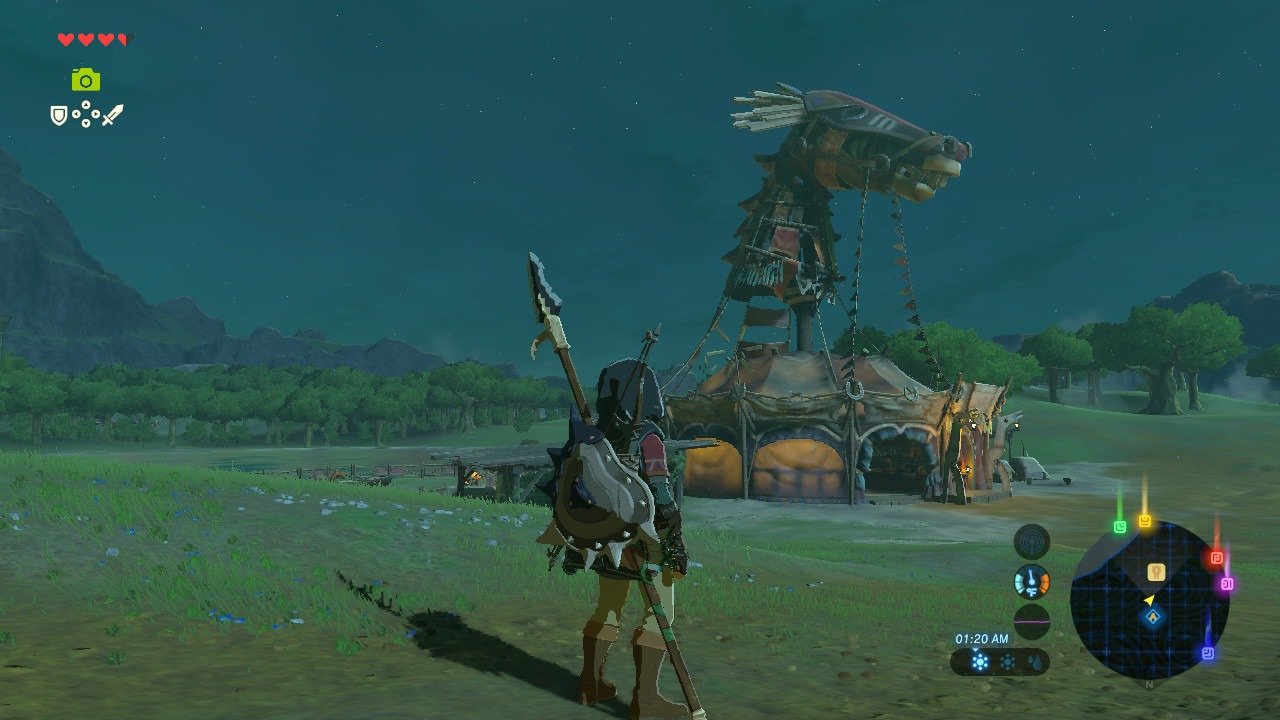
Breath of the Wild is massive and its weaknesses can get particularly annoying if you try to move through it too fast. Take your time to wander the gorgeous landscapes looking for secrets or just turn on your Switch and enjoy the ability to hop into a dungeon and spend a few minutes testing your brain and coordination. If you pace yourself, you'll find a lot to love.
This game was one of the biggest reasons to buy the Switch when it came out, and it remains a title everyone with the console should try. If you haven't played a Zelda game before, you don't need to be intimidated. The game's lore is easy to pick up and the mechanics will feel familiar to almost anyone who's played an open-world adventure game or RPG. If you have played Zelda games but weren't a fan of some of the series' mechanics, you might still want to try out Breath of the Wild considering how much it transforms the experience.
Samantha Nelson writes about gaming and electronics for iMore, Windows Central and Android Central while also covering nerd culture for publications including IGN and Polygon. She loves superheroes, RPGs, cooking, and spending time outside with her dog. You can follow her on Twitter @samanthanelson1.
